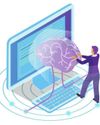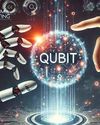
Q. What do you mean by an open AI hardware ecosystem?
A. In hardware design, intellectual properties (IPs) are often closed, posing a challenge for countries like India with abundant talent but limited access to expensive tools. Efforts such as Chip to Startup aim to democratise access, but they reach only a fraction of potential users, considering the vast student base and aspiring researchers. Therefore, the concept of openness entails two crucial aspects. First, openness provides access to free and open source tools, thus expanding accessibility beyond those restricted by costly proprietary software. Second, it pertains to making IPs open, enabling democratised development where individuals from diverse backgrounds can contribute, akin to the Linux open source movement. Embracing openness allows for an open innovation culture in hardware. Openness challenges the traditional closed nature of hardware IPs to create standardised solutions, such as a universally open USB standard, or other such technologies.
Q. How will it affect business opportunities in the electronics hardware ecosystem?
A. It is only going to increase. So, keeping things open is going to reduce the barrier of entry. Currently, funding and access to tools and specific IPs are major barriers. With an open framework, access to these tools, IPs, and design methodologies becomes much easier, allowing more people to start. While many first-year students can easily use Python libraries to build applications, far fewer can build a chip or have access to the necessary resources.
Q. What about AI tools which can help designers with entire chip designs?
A. True, but how do you validate it against a problem? If there is an IP owned by another entity and the designer tries to generate it, they will run into legal complications.
Esta historia es de la edición October 2024 de Open Source For You.
Comience su prueba gratuita de Magzter GOLD de 7 días para acceder a miles de historias premium seleccionadas y a más de 9,000 revistas y periódicos.
Ya eres suscriptor ? Conectar
Esta historia es de la edición October 2024 de Open Source For You.
Comience su prueba gratuita de Magzter GOLD de 7 días para acceder a miles de historias premium seleccionadas y a más de 9,000 revistas y periódicos.
Ya eres suscriptor? Conectar

Amazon Bedrock: A Boon for the Financial Services Industry
Amazon Bedrock is a fully managed service that provides access to foundation models from top AI providers, enabling organisations to build and scale generative AI applications. It is specifically designed to bring AI solutions to the financial sector. Let's explore all that it can do...

Quantum-Safe VPNs: The Future of Secure Communication
As quantum computing continues to advance, it poses a significant threat to traditional cryptographic algorithms that secure our digital communications. Virtual private networks (VPNs), which rely heavily on encryption, are particularly vulnerable. Quantum-safe VPNs utilise post-quantum cryptographic algorithms to protect against quantum attacks.

Popular Open Source Toolkits for Quantum Machine Learning
Quantum machine learning is becoming increasingly popular due to its ability to solve the complex problems of the AI age. Here are a few open source libraries and frameworks that help with quantum computations.

Quantum Computing: Harnessing Open Source for Innovation and Accessibility
We explore how open source initiatives are shaping the future of quantum computing, making it more accessible and driving innovation through collaboration.

How Quantum Computing Differs from Classical Computing
Despite being in its infancy, quantum computing has numerous potential applications in modelling, cybersecurity, AI/ML, and other fields. But how do quantum and classical computing compare with each other? Let's find out...

From Bits to Qubits: The Growth Story of Quantum Computing
Quantum computing may still be in the early stages of evolution, but its potential impact on everyday life is significant. We delve into the key concepts behind it, the reasons for its rapid growth, and how global advancements are shaping its future.

Pytket: A Comprehensive Guide to Quantum Circuit Design
Pytket stands out as a powerful toolkit in the realm of quantum computing, offering a suite of features that cater to both researchers and industry practitioners. Its key strengths include optimisation, platform-agnostic support, flexible quantum circuit design and hybrid algorithm support. These features make Pytket a versatile tool for various quantum computing applications, from machine learning and cryptography to optimisation problems in industrial settings.

Cirq: The Open Source Framework for Programming Quantum Computers
Explore the key features, capabilities, and impact of Cirq, an open source quantum computing framework developed by Google, on the quantum programming landscape.

The Role of Open Source in Accelerating Quantum AI
Here's an overview of how open source frameworks are being utilised to build quantum machine learning models, including quantum neural networks and quantum kernel methods. The challenges and future directions in the quantum AI landscape are also discussed.

Quantum Machine Learning: An Overview
Quantum machine learning (QML) is a burgeoning field at the intersection of quantum computing and artificial intelligence. In recent years, the integration of quantum mechanics with machine learning algorithms has sparked substantial interest among researchers and technologists alike. Here's a quick look at the essentials of creating quantum algorithms for AI models, their practical use cases on open source platforms, and best practices for implementing these advanced algorithms.